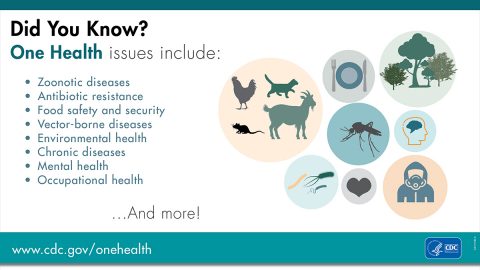|
|
What Are The Most Common Ailments For Pets?
Depending on species, age general health and overall condition of the animal, there are numerous medical issues which can impact animals. Common ailments that affect animals are:
Parasitic diseases- Infections by ticks, fleas, worms and mites cause various diseases. Regular checkups and parasite prevention are crucial. Skin problems such as dermatitis, allergies, and hot spots can cause discomfort and irritation in animals.
Ear Infections: Ear diseases can be common among pets and cats, in particular those with floppy or drooping ears. They can trigger the ears to hurt and cause hearing problems.
Dental Issues - Dental problems like tooth decay, gum infections, and periodontal issues can have a negative impact on an animal's health.
Respiratory Diseases - When animals are in stress or in environments that are overcrowded animals may suffer from upper respiratory diseases (pneumonia, the bronchitis) and pneumonia.
Arthritis or joint problems Certain large breeds and even older animals can suffer from arthritis. This can cause discomfort and decrease in mobility.
Obesity. Animals who are overweight could be at risk of developing a range of health issues, such as diabetes, joint disease, and heart disease.
Other digestive issues could be caused by dietary problems or infections, as well as other ailments.
Cancer- Animals may also develop cancer. It can be treated by surgery, chemotherapy, or radiation.
Injuries and Wounds - Injuries and wounds from fights, accidents or falls can lead to soft tissue injuries such as fractures. This requires medical attention. Regularly scheduled veterinary exams and vaccinations against parasites and a healthy diet can prevent the development of these conditions. If an animal shows signs of illness or discomfort, it is important to seek medical attention immediately. Check out the best pet digestive supplements for site examples.

What Are The Most Effective Supplements, Vitamins, And Probiotics For Canines?
Your dog's requirements along with any recommendations from your veterinarian, should inform your selection of probiotics, supplements, and vitamins. Although it's important to provide a balanced and healthy diet to your dog, some may benefit from adding supplements. Here are a few common supplements for dogs and their benefits
Multivitamins- A high-quality dog food will provide all of the vital vitamins and minerals your dog needs. However, if your dog has diet restrictions or requires extra support, a multivitamin supplements could be helpful. Be sure to select a supplement that is specifically designed for dogs, as some vitamins are toxic when taken when taken in excessive amounts. Omega-3 Fatty Acids - Omega-3 fats, such as fish oil, can improve the condition of your coat and skin help reduce inflammation and improve joint health. Animals suffering from skin allergies, allergies issues or arthritis are frequently advised to take these supplements.
Probiotics. Probiotics may help improve digestion health by maintaining the gut microbiome in a healthy state. They are utilized to treat gastrointestinal problems like diarrhea, and boost the immune system.
Glucosamine and ChondroitinThese supplements are commonly used to support joint health and lessen the signs of arthritis in dogs, especially those with large or old breed dogs.
Consult with your veterinarian before giving your pet any nutritional supplements. They can offer advice specific to your dog's unique requirements. The dosage may differ based on your dog's size, age, and health status. Supplementation that is excessively high in calories can be dangerous. Also, you should select supplements made by reputable companies because the quality and safety may differ. Always adhere to the dosage instructions and watch for any adverse reactions. Talk to your vet immediately if there are any strange reactions or symptoms. A well-balanced and veterinarian-recommended diet is typically the best way to meet your dog's nutritional needs, and supplements should only be used when necessary and under professional guidance. Find the Top pet herbal supplements for cats with sleep issues for site examples.

How Often Do You See Kidney Failure, Skin Allergic Reactions And Yeast Infection In Dogs? What Is The Best Treatment?
Yeast infections, skin allergies, and kidney failure can occur in dogs, and their frequency varies on various factors, including breed, age, and general health. This article will provide an overview of each disease that is prevalent, as well as possible treatment options.
Yeast infection: The prevalence. The presence of yeast is quite common in dogs. This is especially true for areas like the paws and ears. Breeds like Bulldogs Shar-Peis,, and other breeds that have folds might be more prone to the infection.
Symptoms are itching and swelling or redness as well as a foul odor and discharge. Head aches or discomfort could be caused by an ear infection.
Treatment: Treatment involves addressing the underlying cause (e.g. allergies, skin folds) and topical antifungal medication as well as oral antifungal medicines. Proper hygiene is essential.
Some dogs are not afflicted from these issues. Additionally, their prevalence varies according to breed and. Regular visits to the vet as well as a balanced diet and preventative measures (such controlling fleas, maintaining good hygiene, etc.) can reduce the chance of developing. If you have concerns about your dog's health, whether it be yeast infections or skin allergies, an veterinary doctor is the ideal source to get an assessment and treatment strategy. Early intervention can enhance your pet's quality of life and can lead to better results. The very best of the best pet herbal supplements for cognitive function for website tips.
 |
|